Archived Fire Damage Blog Posts
Getting Back to Basics for Household Fire Safety
10/16/2023 (Permalink)
Practicing fire safety is one of the most important things that individuals can do to protect their homes and their families. Not only can property losses be difficult, but house fires can also claim lives and be a devastating occurrence all around.
While there are many resources for fire safety out there, having all of the information in one place is not always possible. To help families stay safe and readily access the information they need to do so, we have put together our guide to the best fire safety tips so you can stay prepared.
<h3tips-for-fire-safety-in-the-household">Best Tips for Fire Safety in the Household
Frequently Check Smoke Detectors. Smoke detectors are one of the top tools required for fire safety. They should be put in every room and in the main area of every floor, and it is recommended to use an interconnected system so they will all be triggered if one goes off. Be sure to test them every 30 days as well.
Have a Fire Escape Plan. A fire escape plan is another extremely important element of fire safety. Be sure you have an escape route mapped for every room of the home and are aware of how to check for fires behind closed doors. Establish a household meeting spot where everyone can reconvene once they have safely escaped, as well.
Know How to Operate a Fire Extinguisher. Picking the right fire extinguisher for your household is important, as is knowing how to use it. Make sure to understand how yours operates and how to spray it to most effectively extinguish flames.
Never Leave Flames Unattended. Flames and cooking appliances that are unattended are some of the most common fire starters across the country. Even candles and ovens can pose a risk that can quickly become out of hand if there is no one in the room. It is best to never leave any flame unattended for any length of time.
Keep a Closed-Door Policy. For nighttime fire safety, sleeping with the door closed is one of the best things you can do, as a door will hinder the spreading of the flames. Nighttime fires are quite common and are some of the most fatal, so practicing safe sleeping habits can help you and everyone else in the household stay protected.
If you’d like to learn more about protecting yourself from a house fire and how our restoration services can help you recover, get in touch today to learn more.
Why House Fire Rates Go Up in the Winter
10/16/2023 (Permalink)
As cooler air begins to move into an area, the rate of house fires increases as a result. While there are many reasons behind a house fire occurring, being alert to winter-specific risks is a smart way to stay safe during the colder days.
Being aware of the reasons home fires are more likely in the winter as well as prevention tips you can implore at any time is key to fire safety.
<h3house-fires-increase-in-cool-weather">Why House Fires Increase in Cool Weather
An Increase in Cooking
Because most of us cook nearly every day, it is the leading cause of all home fires at any given time. This is especially true for the winter months, as more people are baking, entertaining and cooking holiday meals—increasing the likelihood of this occurring.
The Risk of Heaters
Winter fires are also commonly caused by unsafe heating methods, which amounts to the second most common fire cause in the winter. Portable heaters are a common culprit, as models not equipped with an automatic shutoff can tip over and cause a fire to start on the floor. Additionally, it is important to keep anything flammable away from any type of heat source, especially a fireplace.
Candles and Decorations
While open flames and candles are quite common, they present the risk of a house fire any time they are lit. Several winter holidays are commonly celebrated with candles, and decorative or scented candles are increasingly common in cold weather. Additionally, decorations can pose hazards, as many are only used once per year and can cause electrical fires to break out.
<h3weather-fire-prevention-tips">Cold Weather Fire Prevention Tips
Though it is the knowledge we all hope to never have to use, focusing on prevention and preparation is the best way to ensure you are ready for a house fire. These safety tips are helpful both in the winter and year-round to help you and those in your household stay safe:
- Check smoke alarms once every 30 days and replace them every 10 years.
- Always monitor open flames.
- Select space heaters with automatic shut-offs in case they tip over.
- Utilize a screen every time you use a fireplace.
- Draft and practice an emergency escape plan with your household.
If your home has been impacted by a fire, call us right away. We are leaders in restoration and can help you recover quickly after a fire occurs.
What are the leading causes of attic fires?
5/5/2022 (Permalink)
The absolute most common cause of attic fires in residential homes is an electrical malfunction. Sometimes circuits get overloaded, and if the breaker fails to trip, the overloaded circuit could cause a fire. Electrical overloads that overheat in attic insulation and other parts of the home are responsible for approximately 43% of all residential attic fires.
Another common cause of attic fires is heating. Studies show that around 5% of attic fires are started when home heating systems malfunction.
The third major cause of residential attic fires is those caused by natural sources. Natural sources are a broad category that includes lightning, damage from fallen branches or trees, and rainwater that seeps into electrical systems. Any of these can cause a spark to ignite attic insulation, leading to a fire that can spread quickly through the attic.
What can I do to protect my attic from a fire?
While there is very little you can do to protect your home from a fire started by natural causes, the good news is that there is plenty you can do to protect from electrical and heating fires. Have your HVAC serviced regularly by a professional to ensure that it is working correctly and there are no fire hazards in play. Regular duct cleaning removes dust, lint, and other debris, preventing any spark from catching hold.
An electrician can inspect the wiring present in your attic to ensure it is in good condition. Finally, be aware of the power your electronics and appliances use, making sure to avoid overloads in the first place.
Have an attic professional inspect your attic insulation to make sure that it meets current fire standards. Attic insulation plays a crucial role in making sure that your attic remains safe from fire. Not only will the proper attic insulation stop the flames from spreading, but ensuring that you have the right attic insulation will make your home safer in other ways as well, by preventing the growth of mold, for example.
For more info visit atticprojectsseattle.com
Garage fire safety tips
5/5/2022 (Permalink)
- Store oil, gasoline, paints, propane and varnishes in a shed away from your home.
- Keep items that can burn on shelves away from appliances.
- Plug only one charging appliance into an outlet.
- Don’t use an extension cord when charging an appliance.
- Install:
- A 20-minute fire-rated door that is self-closing and self-latching from the garage into the house.
- A ceiling made with ?-inch Type X gypsum board (or the equivalent) if you have living space above the garage.
- A wall with ½-inch gypsum board (or the equivalent) if the wall attaches the garage to your home.
- An attic hatch cover if you have attic access from the garage.
- A heat alarm — not a smoke alarm — in your garage. The heat alarm will sound if the temperature rises too high.
for more info visit beaheroesaveahero.org
Winter Fire Preparedness
1/21/2022 (Permalink)
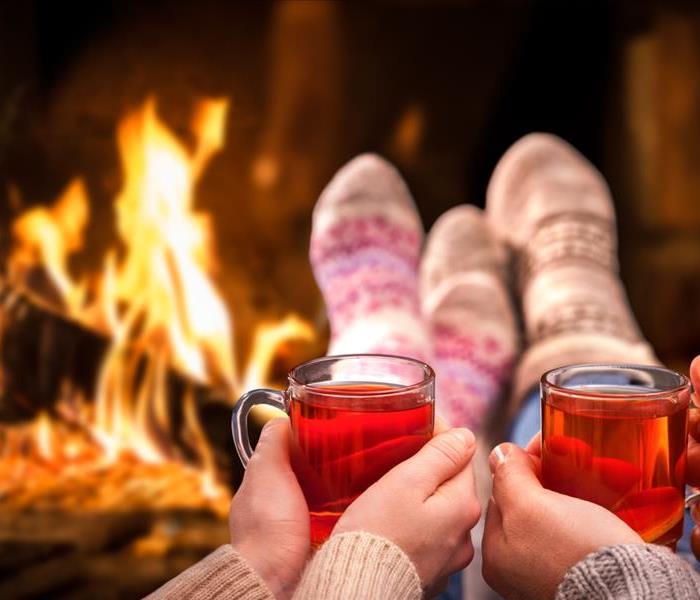 Stay safe this winter! Call SERVPRO of Ames for your restoration and reconstruction needs.
Stay safe this winter! Call SERVPRO of Ames for your restoration and reconstruction needs.
With Winter firmly establishing itself throughout Iowa over the last few weeks, plenty of us are considering ways to stay as warm as possible until the Spring. Heat is such a critical part of a Midwesterners Winter, which makes winter fire safety is all too important. We continue our Winter Preparedness Series today by diving into the topic of winter fire safety, mainly discussing how it applies to residential properties. While there are many reasons for house fires occurring, the rate and probability of housefires increases throughout times of cold weather and frigid temperatures. Common Winter themes such as candles burning, warm food cooking, and heaters set on high can all lead to a potential winter fire risk.
Carbon Monoxide Safety Tips
- Have your home heating systems (including chimneys and vents) inspected and serviced annually by a trained service technician.
- Never use portable generators inside homes or garages, even if doors and windows are open. Use generators outside only, far away from the home.
- Never bring a charcoal grill into the house for heating or cooking. Do not barbeque in the garage.
- Never use a gas range or oven for heating.
- Open the fireplace damper before lighting a fire and keep it open until the ashes are cool. An open damper may help prevent build-up of poisonous gases inside the home.
- Install battery-operated CO alarms or CO alarms with battery backup in your home outside separate sleeping areas.
- Know the symptoms of carbon monoxide poisoning: headache, dizziness, weakness, nausea, vomiting, sleepiness, and confusion. If you suspect CO poisoning, get outside to fresh air immediately, and then call 911.
- Check smoke alarms once every 30 days and replace every 10 years.
Prevent Home Fires
- Portable Space Heaters - Keep combustible objects at least 3 feet away.
- Fireplaces & Woodstoves - Inspect and clean pipes and chimneys annually.
- Generators - Use in well ventilated locations outside at least 5 feet from all doors, windows, and vent openings.
- Cooking - stay in the kitchen and turn off the stove if you leave, even for a short period of time.
- Electrical & Appliance Safety - Replace all worn, old, or damaged appliance cords.
What To Do If an Emergency Occurs
SERVPRO of Ames is a restoration company that helps people with their homes following a fire throughout Story County. What makes a restoration company imperative is that you cannot just head back into your home after there has been a fire. There are numerous hazards that must be cleaned, boarded, and a variety of other issues that must be handled first. After emergency crews take care of the initial scene, SERVPRO of Ames is able to follow closely behind and begin the restoration process of your home and valuables. Unsure of where to turn after a winter weather emergency? Call SERVPRO of Ames 24/7 at (515) 233-4544 or send a message on Facebook at SERVPRO of Ames.
If your home has been impacted by a fire, call us right away. We are leaders in restoration and can help you recover quickly after a fire occurs.
As Temperatures Lower, House Fire Rates Increase
12/6/2021 (Permalink)
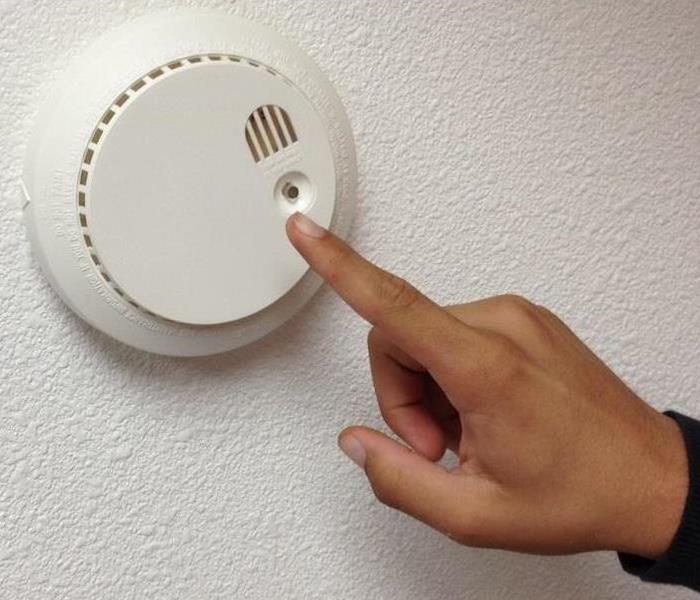 As it gets colder outside, housefire prevention becomes increasingly important.
As it gets colder outside, housefire prevention becomes increasingly important.
As cooler air and frigid temperatures begin to occur throughout central Iowa and the Midwest as a whole, the rate of house fires increases as a result. While there are many reasons behind a house fire occurring, being alert to the winter-specific risks is a smart way to stay safe during the colder days, holidays, and all in between. Prevention is always easier than treatment, but we are here every step of the way.
Why House Fires Increase in Cool Weather
An Increase in Cooking
Because most of us cook nearly every day, it is the leading cause of all home fires at any given time. This is especially true for the winter months, as more people are baking, entertaining and cooking holiday meals—increasing the likelihood of this occurring.
The Risk of Heaters
Winter fires are also commonly caused by unsafe heating methods, which amounts to the second most common fire cause in the winter. Portable heaters are a common culprit, as models not equipped with an automatic shutoff can tip over and cause a fire to start on the floor. Additionally, it is important to keep anything flammable away from any type of heat source, especially a fireplace.
Candles and Decorations
While open flames and candles are quite common, they present the risk of a house fire any time they are lit. Several winter holidays are commonly celebrated with candles, and decorative or scented candles are increasingly common in cold weather. Additionally, decorations can pose hazards, as many are only used once per year and can cause electrical fires to break out.
Additional Cold Weather Fire Prevention Tips
Though it is the knowledge we all hope to never have to use, focusing on prevention and preparation is the best way to ensure you are ready for a house fire. These safety tips are helpful both in the winter and year-round to help you and those in your household stay safe:
- Check smoke alarms once every 30 days and replace every 10 years.
- Always monitor open flames.
- Select space heaters with automatic shut-offs in case they tip over.
- Utilize a screen every time you use a fireplace.
- Draft and practice an emergency escape plan with your household.
If your home has been impacted by a fire, call us right away. We are leaders in restoration and can help you recover quickly after a fire occurs.
House Fire Damage Prevention Tips
11/1/2021 (Permalink)
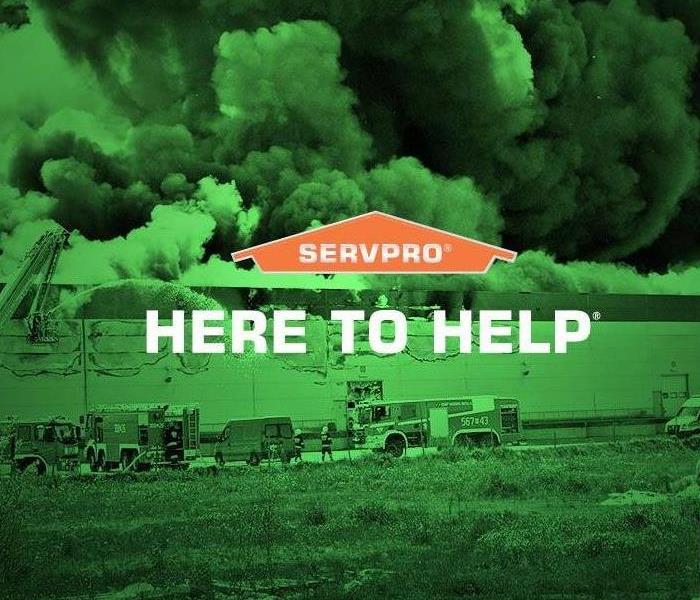 Prevention, not treatment. We hope this information reaches you early, so we can all be best prepared to prevent housefires.
Prevention, not treatment. We hope this information reaches you early, so we can all be best prepared to prevent housefires.
House fires take the homes of too many people. Your home is where you build your life. That’s why it is so scary to imagine your home ever suffering from a disaster such as a fire. We here at SERVPRO of Ames want to offer some insight on how to protect your home and your family.
There are some steps you can take to help reduce the risk of fire and smoke damage. Not sure where to begin, or what items in your home pose a threat?
- Test Your Smoke Alarms Regularly
There is a little button on it that you can press to test it. If it beeps weakly, then you need to change the batteries ASAP.
If a fire breaks out and it’s not working, no one is alerted to evacuate.
- Inspect All Your Heating Sources
If your heating sources aren’t working properly, they could trigger a fire to happen. You should have them checked out annually by a professional, to reassure your safety and peace of mind.
Make sure your air filters are always cleaned out. A fire can easily start from debris and dust being too close to a heat source so make sure you clean them regularly.
- Properly Store Flammable Products
Household cleaners and common cosmetic items like hairspray and shaving cream can be hazardous. If they are exposed to a large heat source, they can combust. - Keep Your Stove and Oven Clean
The stove won’t randomly start on fire because of your cooking. It most likely happens because of oils or food that was left on the burner and got too hot. - Always Check Your Dryer
Your lint traps are a hazard waiting to happen when not cleaned properly.
You also need to check behind the machine to make sure lint or little clothing items don’t manage to get back there.
- Maintain All Cords
Make sure that the cord hasn’t been frayed or chewed. If you do notice damaged wires, replace them as soon as possible because this is a huge fire hazard. - Keep Fire Extinguishers Around
Fire extinguishers are your best defense weapon when a fire breaks out. Get them checked regularly, since they can expire.
There is nothing more devastating than losing everything you own to house fires. While we do love to help out, SERVPRO wants to help prevent this disaster from occurring in your home. We'd love to answer any questions you may potentially have. Give us a call at 515-233-4544
Story County Smoke and Soot Cleanup
10/11/2021 (Permalink)
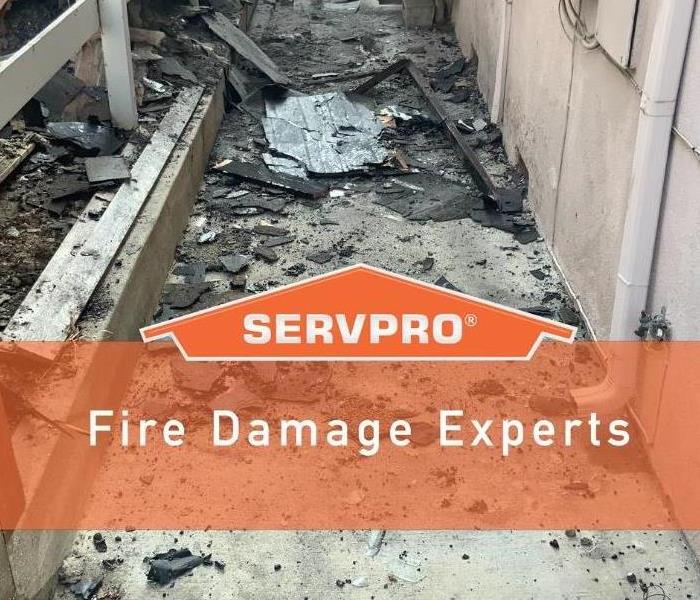 Smoke and Soot Damage Can Cause a Pervasive Odor in Your Story County Home.
Smoke and Soot Damage Can Cause a Pervasive Odor in Your Story County Home.
Smoke and soot is very invasive and can penetrate various cavities within your home, causing hidden damage and odor. Our smoke damage expertise and experience allows us to inspect and accurately assess the extent of the damage to develop a comprehensive plan of action.
Smoke and soot facts:
- Hot smoke migrates to cooler areas and upper levels of a structure.
- Smoke flows around plumbing systems, seeping through the holes used by pipes to go from floor to floor.
- The type of smoke may greatly affect the restoration process.
Different Types of Smoke
There are two different types of smoke–wet and dry. As a result, there are different types of soot residue after a fire. Before restoration begins, SERVPRO of Ames will test the soot to determine which type of smoke damage occurred. The cleaning procedures will then be based on the information identified during pretesting. Here is some additional information:
Wet Smoke – Plastic and Rubber
- Low heat, smoldering, pungent odor, sticky, smeary. Smoke webs are more difficult to clean.
Dry Smoke – Paper and Wood
- Fast burning, high temperatures, heat rises therefore smoke rises.
Protein Fire Residue – Produced by evaporation of material rather than from a fire
- Virtually invisible, discolors paints and varnishes, extreme pungent odor.
Our Fire Damage Restoration Services
Since each smoke and fire damage situation is a little different, each one requires a unique solution tailored for the specific conditions. We have the equipment, expertise, and experience to restore your fire and smoke damage. We will also treat your family with empathy and respect and your property with care.
Have Questions about Fire, Smoke, or Soot Damage?
Call Us Today – (515) 233-4544
Keep SERVPRO of Ames on Emergency Fire Contact List
11/9/2020 (Permalink)
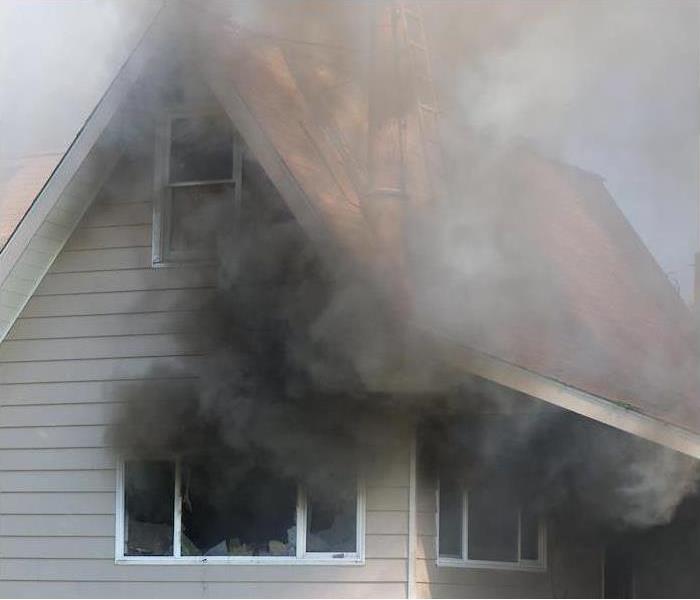 Trust SERVPRO of Ames to help restore your home and belongings after a fire.
Trust SERVPRO of Ames to help restore your home and belongings after a fire.
As temperatures drop and fireplaces and furnaces kick in, so do the risks of fires. Winter is the most common time for home fires, according to the Red Cross.
Though it’s not enjoyable to plan for a house fire, it is important to think ahead. Not only should you create a fire escape plan to share with your family, but you should also make a decision in advance about what restoration company to use so you can be ready if the time comes.
Choose SERVPRO of Ames for Fire Restoration
The staff of SERVPRO of Ames has many years of combined experience and certified training to help restore your home and all your salvageable contents to their pre-fire condition. We do this by following three methods of deep-cleaning.
Structural Cleaning
After a fire, the structural elements of your home will likely need to be cleaned, including carpets, walls and subfloors. Our trained technicians will first perform a test to establish the extent of the damage. This helps us choose the best equipment and cleaning techniques to handle your surfaces. In some cases, we can remove mild soot buildup straight from the walls, while in other cases, we may have to completely repaint after cleaning and prepping your walls.
Content Cleaning
Your belongings are just as important as your home itself—that’s why we make sure we carefully and properly clean all the contents inside your house, too. Curtains, rugs and furniture can be cleaned and deodorized using either wet or dry cleaning processes. We can often also restore other damaged items such as clothing, books and more.
Deodorization Services
Fire can leave behind persistent smoke odors, but it can also leave behind hazardous soot particles that may lead to health issues. Instead of using artificial fragrances to mask the odors, we go to the source of the odors and remove them with air scrubbers and other odor-eliminating equipment. With a variety of deodorization methods available, we work with you to choose what’s best for your situation.
Trust SERVPRO of Ames after a fire to help restore your home in Gilbert, Colo, Cambridge, Nevada or anywhere in Boone or Story County. Keep us on your list of emergency contacts at 515-233-4544. You can call us any time, day or night!
How to Help Prevent Furnace Fires
9/23/2020 (Permalink)
 Furnace fires can easily be prevented with regular maintenance and cleaning.
Furnace fires can easily be prevented with regular maintenance and cleaning.
This summer, we were all thinking about how to stay cool. But with fall upon us, it’s time to start cranking up the heat again (hopefully not too soon). If you heat your house with a furnace, a little preventive maintenance now can help prevent a fire when you do turn on your heat.
Gas furnaces are more prevalent than wood or coal. (Yes, about 130,000 households still burn coal.)
And while furnaces are generally quite safe, they can occasionally cause house fires. That’s why it’s important to properly maintain any kind of furnace.
Clean around the furnace. Move any debris or stored items at least three feet away from your furnace.
Clean the furnace itself. Dirt and grime can cause overheating. They can also prevent you from seeing any damage or other problems.
Replace dirty air filters. Dirty or clogged air filters prevent the flow of air, leading to overheating. This can increase the likelihood of a fire.
Check your chimneys and vents. Clogged vents or flues can lead to fires. Call a professional if you need help with this task.
Check smoke and carbon monoxide alarms. Both should be installed throughout your house and should be tested to see if they’re working properly. If you don’t have both kinds of alarms, make that the very first errand on your list.
Invest in a professional maintenance checkup. A furnace professional can identify and correct problems such as a cracked heat exchanger or incorrect pressure in the furnace. Even flame color can tell an experienced repair person how well your furnace is functioning. If you haven’t had your furnace serviced lately, make an appointment this month.
If your home has suffered fire damage, SERVPRO of Ames can help. Our agents are on call around the clock so we can start helping you get back to normal, fast. Contact us at any hour for assistance.
Follow These Safety Habits to Prevent A Dangerous Grill Fire
8/6/2020 (Permalink)
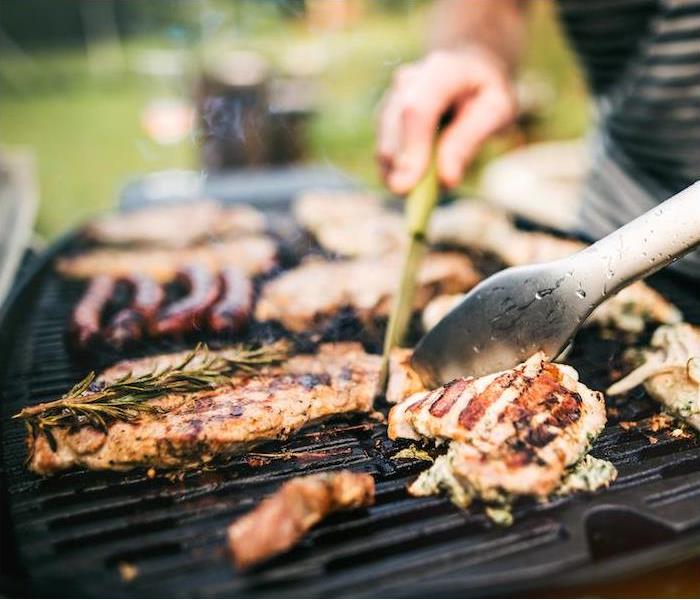 Make sure you follow safe habits whenever you use your grill.
Make sure you follow safe habits whenever you use your grill.
Grill season lasts well into the fall, and most of us are likely making good use of our grills to cook our favorite foods. Grilling allows you to get outside and enjoy the extra daylight summer has to offer, but they also cause many deaths and injuries as well as millions of dollars in property damage each year. No matter how frequently you use your grill, you should always practice good safety habits to avoid a fire.
Create a safe zone around your grill. While it may be convenient to set your grill up on your deck, it’s not a safe choice for its location. Grill fire flare-ups can easily spread to surrounding property, including porches, patio railings and deck. Grill fires can also melt vinyl siding. It’s recommended that you keep at least a three-foot safe zone around your grill at all times away from your home’s structure.
Clean your grill grates often. Food particles can build up on the grill over time, creating a prime opportunity for a grease fire to break out on your grates. Giving the grill a quick brush after each use helps keep down flammable buildup.
Never leave the grill unattended. Just as you would not leave your stove top unattended, you should never walk away from a lit grill, even if the lid is down. Fires can start in an instant. If you keep your eye on the grill and keep a fire extinguisher nearby, you can immediately stop a fire from spreading.
Inspect the grill regularly. While charcoal grills pose fewer hazards, you need to be extremely vigilant about frequently checking the gas lines of a propane grill. The seals around the propane tank and the lines that transport the gas can become worn with time and allow gas leaks that can potentially lead to dangerous explosions. If you see any signs of wear on the tank or the lines, carefully and safely replace them.
If a grill fire damages your home in Ogden, Huxley, Roland, Maxwell or Cambridge or anywhere in Story or Boone County, call SERVPRO of Ames at (515) 233-4544 any time, day or night . We’ll be there quickly to protect your property from further damage and restore it to its original state, “Like it never even happened.”
How to Deal With the Aftermath of a House Fire | SERVPRO® of Ames
6/24/2020 (Permalink)
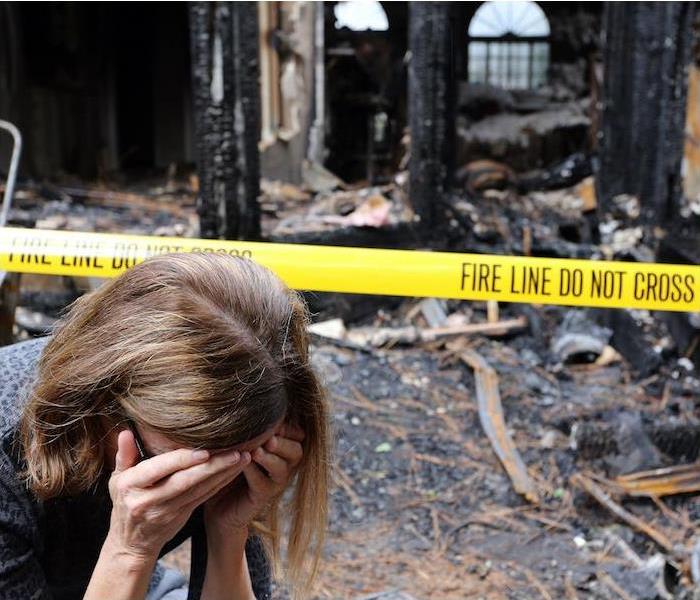 Learn what you can do to make the recovery from a devastating house fire easier for you and your family.
Learn what you can do to make the recovery from a devastating house fire easier for you and your family.
A house fire is an absolutely devastating situation. No matter how quickly the fire was extinguished, it can still cause serious household damages and emotional repercussions for your entire family.
While handling the damage may seem overwhelming, you can make sure you are doing everything in your power to recover quickly and lessen the impact on your home and your mental well-being.
Enlist emotional support.
The damage that fires cause can be alarming to see firsthand. Firefighters will often have to break windows or cut holes in the roof or walls, and many items that were not near the fire may still be damaged by smoke, soot and water from the fire extinguishers. When you are preparing to see your home for the first time after a fire, understand that it will be traumatic and you will need to grieve. Bring people who can provide emotional support to you and your family, and be open to seeking therapeutic counseling to help yourselves through the grieving process if needed.
Wait to enter your home.
Though things may appear to not be damaged enough to make your home a hazard, never enter without first checking with officials to determine everything is safe. The invisible damage a fire causes can undermine a home’s structural elements, and a second combustion may even be possible depending on the source of the fire. Make sure you always wait for the official OK before reentering your home.
Contact your insurance company.
As soon as possible after the fire, contact your insurance agent to find out what your homeowners insurance policy covers and start your claim. Because policies vary so wildly, this should be done early on so you do not risk accidentally undermining your claim.
Document the damages.
Do a full inventory of all the damages, and take detailed photographs so you have record of everything in the home that is impacted. Not only will this be helpful as you work with your insurance adjuster, but it is also a handy tool for your personal records so you can see what you will need to replace in the home. It’s wise to have an ongoing inventory of your personal belongings before you experience a fire. If you already have a documented inventory, use that as a guide when assessing damage.
Contact your restoration company.
There is not enough good that can be said about working with a qualified fire restoration company to help you mitigate the damages. Fires are extremely stressful for your entire household, but working with a company you can trust, like SERVPRO of Ames, can alleviate many worries and headaches. We are experts at handling the details after a fire. We can help guide you through difficult steps, save you extra work and answer many of your questions along the way.
Call SERVPRO of Ames at (515) 233-4544 anytime, day or night, to help you recover after a fire. We live and work in your local Boone and Story County areas and understand what you need most after experiencing this kind of traumatic disaster. We’re ready to help!
A Guide to Workplace Fire Preparedness
3/13/2020 (Permalink)
Taking note of the risks your business is likely to face is wise—especially when it comes to emergencies such as fires. Workplace fires are a common occurrence that can cause a serious headache for your business, especially if you and your staff are under-prepared.
Handling an emergency scenario such as a fire efficiently is key for lowering your risks and keeping your staff safe. By understanding common fire starters, evacuation practices and equipment requirements, you can increase the safety of your workplace and work toward a quicker recovery in the aftermath.
How to Prepare for Fires at Your Business
Follow code guidelines and inspection schedules. Your business should be up to date on fire codes set forth by the National Fire Protection Association regarding fire equipment and testing. Make sure you know when to perform your monthly tests of alarms, as well as when to work with your local fire department for more in-depth inspections.
Identify your specific risks. There are many fire risks that can be present in any commercial building, and certain industries carry far more dangers than others. As a business owner, it is smart to assess both your office space as well as any warehousing or any special equipment you may have that could contribute to your overall fire risk profile.
Create (and practice) a fire evacuation plan. Being able to get out quickly in case of a fire is key to keeping everyone as safe as possible. Designate at least two exit paths from each area of your building and host fire drills with your staff frequently. By helping everyone be adequately prepared, you can reduce panic in a real-life scenario and ensure no one is injured in the process.
Have regular fire safety seminars with staff. Bringing the staff together for fire safety demonstrations will make sure everyone is practicing fire safety tips in their daily tasks. Go over safety in the staff kitchen, storage locations of fire extinguishers, and when and how to activate the building’s fire alarm in case of an emergency to increase everyone’s safety in the workplace.
If your Nevada, Story City or surrounding area business has experienced a fire, we’re here 24⁄7 to respond and begin restoration. Call us today to learn how we can help you.




 24/7 Emergency Service
24/7 Emergency Service







